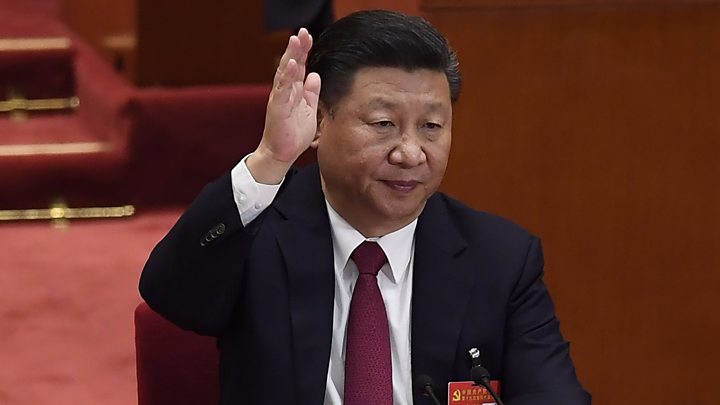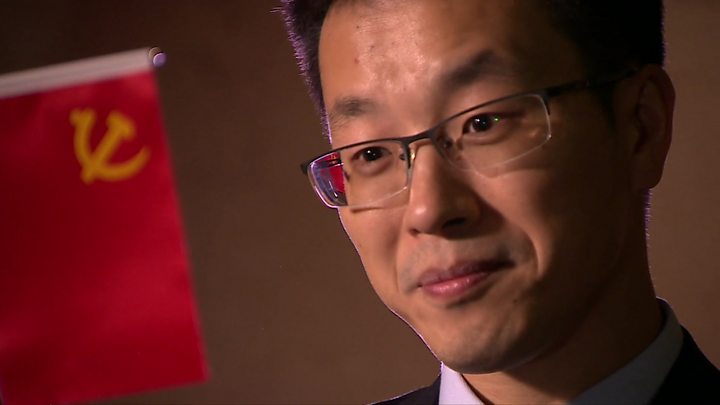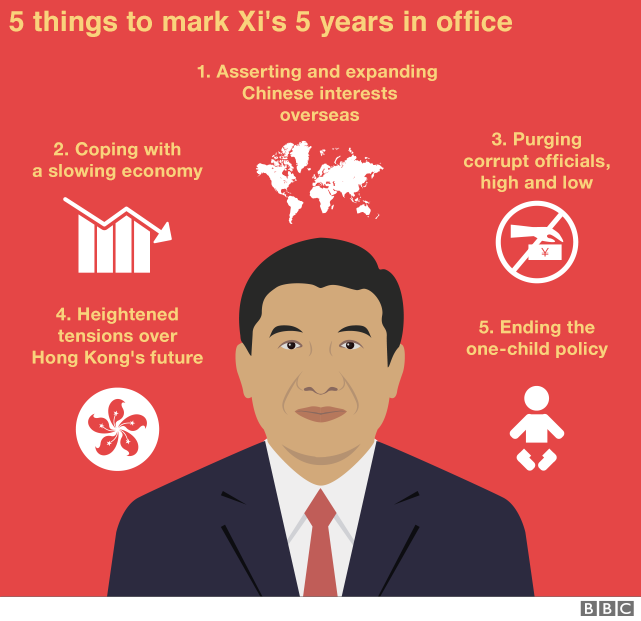
This article is more than
8 year oldMr Xi, 64, will on Wednesday announce the line-up of the seven-member Politburo Standing Committee, the country's most powerful politicians.
Chinese leaders have in recent decades included one or more possible heirs, indicating a clear line of succession.
But there is speculation Mr Xi may buck that trend, cementing his own power.
The announcement of the Standing Committee, as well as the 25-member Politburo, comes after the end of the Communist Party congress, China's most important political meeting.
Delegates at the meeting elected the powerful Central Committee, a group with some 200 members which meets twice a year.
The party voted on Tuesday to enshrine Mr Xi's name and ideology into its constitution, elevating him to the same level as the nation's founding founder, Mao Zedong.
The unanimous vote to incorporate "Xi Jinping Thought" significantly strengthens Mr Xi's political control of the country, making him essentially unassailable.

Elected president in 2012, he begins his second five-year term as of this year's congress. Chinese leaders are supposed to serve only a 10-year term, but Mr Xi could continue as party chief and head of the military.
Five of the current seven members of the Standing Committee are due to retire, with only Mr Xi and Premier Li Keqiang staying on.
An unconfirmed list of five candidates slated to join the committee, reported by both the South China Morning Post, and New York Times, contains no likely successors to Mr Xi.

Chongqing's party chief Chen Miner, 57, and Guangdong party chief Hu Chunhua, 54, both of whom are young enough to be credible successors, are not included.
Sun Zhengcai, a Politburo member once thought of as a possible leadership contender, who was expected to be elevated to the Standing Committee, is reportedly now under investigation for violating party regulations.
Mr Xi's has assumed an unprecedented number of positions since coming to power in 2012, including the title of a "core" leader of China.
His first term has been marked by significant development, a push for modernisation and increasing assertiveness on the world stage.
It has also seen growing authoritarianism, censorship and a crackdown on human rights.
He has spearheaded a sweeping anti-corruption campaign which has seen more than a million officials disciplined. It has been seen by some as a massive internal purge of opponents.

At first glance, "Xi Jinping Thought" may seem like vague rhetoric, but it describes the communist ideals Mr Xi has continuously espoused throughout his rule.
Its 14 main principles emphasise the Communist Party's role in governing every aspect of the country, and also include:

By Carrie Gracie, China editor, Beijing
 Image copyrightREUTERS
Image copyrightREUTERS
China's new slogan hardly trips off the tongue.
But schoolchildren, college students and staff at state factories will now have to join 90 million Communist Party members in studying "Xi Jinping Thought" on the new era of socialism with Chinese characteristics.
The expression "new era" is the party's way of saying this is the third chapter of modern China.
If the first was Chairman Mao uniting a country devastated by civil war, and the second was getting rich under Deng Xiaoping, this new era is about even more unity and wealth at the same time as making China disciplined at home and strong abroad.
Enshrining all of this under Xi Jinping's name in the party constitution means rivals cannot now challenge China's strongman without threatening Communist Party rule.